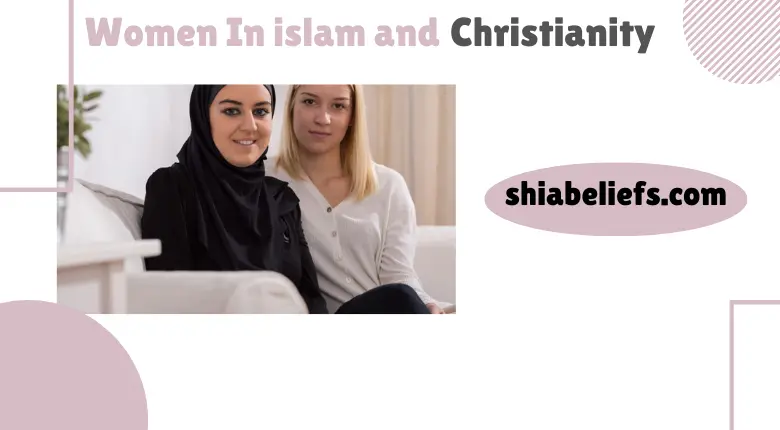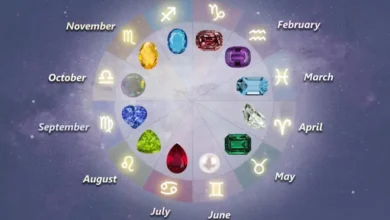Women in Islam and Christianity

Women in Islam and Christianity (A Comparative Research)
Key points:
- Over view of Islam and Christianity
- Women in Christianity
- According to the oldest Christians
- Men’s are more superior
- Women’s are the source of all evil on earth
- Women’s are punished more harshly than men
- Women’s are ‘temptresses’
- Female is malformed
- Women’s importance in Christianity after the year 1600
- Women as the Image of God
- New Sects Improve Women’s Status
- Situation Right Now
Introduction:
The status of women has recently been contested. Women’s studies, feminism, women’s rights, and gender justice are current hot issues. When we look back in history to see why so much is done for one gender, we see that religious doctrines and interpretations have played a significant part in building and maintaining this gender-based divide.
This dissertation examines the representation of women in religious texts as well as their status in connection to the various interpretations of sacred literature in two major religions, Christianity and women in Islam. This article is analytical and referential, based on secondary sources, primarily commentaries on the sacred writings of both religions.
Overview of Christianity and Islam:
Because Christianity and Islam are descended from Judaism, they share a common history and tradition. Both monotheistic religions worship the same deity. Jesus was God’s son and humanity’s “Messiah” who came to earth to save humans from sin.
Women in Christianity:
The Bible is the primary source of authority for Christians, yet it does not explain everything. The Bible is divided into various volumes that have been authored and amended over time. The majority of it is made up of the Old Testament (the Hebrew Bible, the sacred scriptures of the Jewish faith, written between 1200 and 165 BC) and the New Testament (27 books written between 50 and 100 AD). Gender roles exist in Christianity, as they do in other religions.
Diverse Biblical readings by Christians at various eras, however, have affected their views on women. The Old and New Testaments were attacked by early feminist movements as patriarchal, denying women’s authority in many spheres of life. They assert that celibate males have traditionally dominated the church and reinforced anti-women doctrines in order to keep women in their place, first in church and subsequently in society.
However, with the pronouncements of several women’s organizations and the advent of new sects such as the Quakers, Methodists, Baptists, and some provinces of the Anglican Communion, attitudes shifted and a push for equality began. Later, the churches of these new groups empowered women as well. The historical development of Christianity’s perspective on women is addressed here.
The Oldest Christians:
Proponents and preachers (Roman Catholic priests) of Christianity have interpreted women’s role and place as follows:
- Men’s are superior:
The first book of the Christian Bible, Genesis, contains two tales about human creation. “So God created man in the image of himself, and then he created women (Genesis 1:27).” This suggests gender equality. God created Adam in Genesis 2:7. Man was created from dust and breathed life into his nostrils by God. God formed ‘Eve’ from one of Adam’s ribs when he realized this man needed a helper. Adam called Eve ‘woman’ after she was taken from man.
- Women’s are the source of all evil on Earth:
Early Christians depicted Eve as adulterous. Eve saw the fruits of the Tree of Knowledge and found it very enticing, so she ate some and offered it to Adam, who was with her. Adam wasn’t disloyal because he was created first; Eve encouraged him to commit crime. If Eve hadn’t tempted Adam, he wouldn’t have disobeyed God.
- Women’s are punished more harshly than men:
Adam and Eve sinned by defying God, and Adam’s (man’s) punishment was earning a living, which was thought to be difficult because the ground was cursed and cultivating food was difficult. Eve’s punishment was harsher, as she will desire her husband’s power while suffering through childbirth and care.
- Women’s are ‘temptresses’:
According to Christianity, Eve gave sexuality to Adam, thus women always tempt males for sex, which the celibacy-promoting church deems the greatest temptation.
- Male seeds provide the human body its “form”:
The Christian genesis myth condemns Eve (woman) for her sins, but Aristotle claimed in the fourth century BC that male seed gives the body its “form.” The lady only receives the male seed that produces a kid.
- Female is malformed:
Aristotle and other supporters of this viewpoint explained that because a woman’s role is apathetic, limited only to taking the seed from the creative man, if all goes well, the baby will be male, but if something goes wrong, the male form is altered and the baby is female (Drury, 1994). In previous eras, every baby girl was a failure, useful only for bearing children with men’s will.
- Roman Empire:
Because the Roman Empire was focused on rebuilding after such massive manpower loss, the most popular Christian ideal, chastity, shifted and people were encouraged to marry; girls were pushed to marry at fourteen in order to have numerous children.
As a result of Eve’s portrayal in Genesis’ origin story, men and women have been conditioned to perceive Eve as a temptress and an evil source since childhood.
It restricted women of the time. Fathers had complete control over unmarried women and husbands over married women. They needed authorization to move. They couldn’t testify in court or meet strangers. “The scapegoating of Eve as the cause of Adam’s fall makes all women, as her daughters, guilty for the radical impotence of ‘man’ in the face of evil, which is paid for only by Christ’s death,” says Rosemary.
Women and its importance in Christianity after the year 1600
Protestant theologians were more enthusiastic about Eve’s sin and inferiority to Adam than Catholic celibate priests.
- Women as the Image of God:
In his Genesis lectures, Martin Luther defined women as God’s image who will inherit the beauty of the future. Eve was created equal to Adam, but she sinned and suffered.
- Motherhood was Glorified:
In his Genesis lectures, Martin Luther linked motherhood with Christ. Mothers nurture, love, and bless their children like Christ. Motherhood is not a punishment. “Ungodly celibacy casts aspersions against female sex,” he said (lectures on Genesis, 3.16). He claimed that God gave women the responsibility of taking care of children and cooking under their husbands, reinforcing husbands’ superiority.
- New Sects Improve Women’s Status:
Quakers and Shakers, led by radical leaders, emerged during the religious turmoil of the seventeenth century. Quakers advocated gender equality, believing that Adam and Eve sinned and that Christ restored equality for his followers. In marriage, husband and wife are equals and need only vow to obey God. They were expelled from universities for deviating from the main religion.
Women in Islam
- Islam promotes gender equality
- Islam Modified Women’s Rights
- Women education in Islam
- Concept of Motherhood in Islam
- Women’s in politics and welfare
- Women Inheritance and Property Rights
- Women and financial responsibilities
- Women and Marriage
- Protecting women dignity
- Truth about Women’s Rights in Islam
In the seventh century, women in Islam granted progressive rights.
Women in Islam are frequently perceived as oppressed, inferior, and unequal, despite the fact that Islam has granted women the most advanced rights since the 7th century, and Muslim women are equal to males. This guide discusses women in islam , duties, and obligations, with a focus on gender equality.
At a time when female progeny in Arabia were buried alive and women were considered property, women in Islam allowed the right to education, marriage, divorce, job, property ownership and sale, legal protection, voting, and civic and political engagement.
Women in Islam promotes gender equality
In 610 C.E., God revealed Islam to Holly Prophet Muhammad, peace be upon him (pbuh), in Mecca. Prophet Muhammad (pbuh) preached unity and kindness, and he transformed pagan Arab society’s view of women by prohibiting the killing of female children and elevating women to a position of dignity, honor, and privilege.
God devotes a whole Quran chapter to women, and God addresses women directly throughout the Quran. Muslims try to retain this purity by avoiding evil and cultivating virtue.
“Indeed, the most noble of you in Allah’s sight is the most righteous,” God says in the Quran. (49:13) God says, “To whoever, male or female, performs acts of kindness and trusts in us, We will provide an excellent life and honor them based on the best of their actions.
Gender Equality in Islam:
Different but Equal
Islam understands that men and women are equal but unique, that God created us with distinct physical and psychological characteristics, and that diversity is necessary to a thriving family and community, with each person contributing their unique talents.
As a result, God’s commandments apply differently to men and women. To maintain modesty, God instructed women to cover their hair, while men must cover their bodies, although not as much as women. As a result, God commanded men and women to be modest in various ways,The women in islam are a powerfull and significant figures .
Islam Modified Women’s Rights
Women in islam, roles, and obligations are equal to men’s while being distinct; comparing men and women is futile because Islam provides them with distinct identities, each of which supports social morality and equilibrium.
It eliminates misconceptions and illuminates women’s many social roles. Muslims may follow their cultural or personal interests and not represent Islam. They disenfranchise women and violate Islam’s stated treatment of women. Such practices, as stated below, violate women in islam.
Women Education in Islam:
Women is islam are allowed to get eductaion equal to men .Muslims have historically followed Holly Prophet Muhammad’s (pbuh) explicit claim that Muslims must seek knowledge. Most of Islamic history has promoted female scholarship and academic participation. In 859 C.E., Moroccan woman Fatima al-Fihri funded the oldest institution, al-Qarawiyin Mosque and institution.
Concept of Motherhood in Islam
Women in islam are respectful in every way such respected relations are connected to women.Mothers are respected in Islam, as God encourages people throughout the Quran to love, respect, and care for their mothers. The Prophet Muhammad (pbuh) remarked, “Heaven lies under your mother’s feet.
Another man regularly asked Muhammad (pbuh), “Who is most worthy of my good companionship?” The Prophet (pbuh) constantly replied, “Your mother.”
he added “Your father,” after the fourth asking.
Women in Politics and Welfare (Islam):
Women in islam are also allowed to participate in politics and welfare of society. Women contributed to early Muslim civilization by freely giving and being sought for advice, tending to the injured and fighting.
Women are urged to grow, serve, and lead the community while maintaining the tradition of Islamic women in politics, lawmaking, academics, and teaching.
Women Inheritance and Property Rights (Islam):
Women in islam have Inheritance and Property Rights. Before Islam, women were considered property to be inherited by men all throughout the world; however, Islam enabled women to own property and inherit from relatives, which was a revolutionary idea in the seventh century.
Wives, mothers, sisters, and daughters are entitled to a portion of the property of their deceased relatives, with the amount determined by the deceased’s kinship and heirs. Islam allowed women inheritance, displaying its universal fairness.
Women and Financial Responsibilities (Islam):
Women in islam don’t need to take any financial responsibility . Women are not required to work or pay for housing, food, or other expenditures in Islam; if a woman is married, her husband must financially support her; if she is not, her closest male relative (father, brother, uncle, etc.) must.
She can also work and spend her earnings; she may, out of goodwill, share her wealth with her husband or other family members, but she is not required to. Syeda Khadija a.s, the Holly Prophet Muhammad’s (pbuh) wife, was a successful business woman who openly spent her fortune to support her husband and Islam.
Married women receive dowries from their husbands, which she owns. She can keep her pre-divorce assets and post-divorce earnings, and her ex-husband has no claim to her property. This provides a woman with financial security and independence in the event of divorce.
Women and Marriage (Islam):
Women in islam are allowed to select or choose any person for marriage as per their wish. Women must consent to marriage contracts; they cannot be compelled to marry for reasons of culture, and Islam bans it; and women can divorce if they are unhappy.
Islamic marriage is based on peace, love, and tolerance.” God says ” And of His manifestation is that He made for you from yourselves partners that you may find tranquility in them, and He established among you affection and mercy, Quran 30:21 Muslims should imitate Holly Prophet Muhammad (pbuh). Muslims should follow his example of helping around the house and loving his family. Holly Prophet Muhammad (pbuh) honored his wife and never mistreated her.
Protecting Women Dignity:
Women in islam are protected in every possible way.When examined holistically, Islam is against domestic violence. According to historians,
Islam forbids oppression and brutality. It cannot be stressed enough that anyone who abuses Islam’s name does so to advance their own cultural or personal objectives.
Truth about Women’s Rights in Islam
Based on God and His Holly Prophet’s teachings, Islam has historically defended women’s civil liberties, and Islamic law offers women important rights and respect in society.
- What are the characteristics of a woman in Islam?
- How do women in islam dress?
- Can women in islam wear revealing clothes ?
- What is not allowed for a women in Islam?
- Importance reason of women in Islam?
- What are the duties of women in Islam?
- Is it haram show their face for women in islam?
- Who is forbidden to marry for women in Islam?




